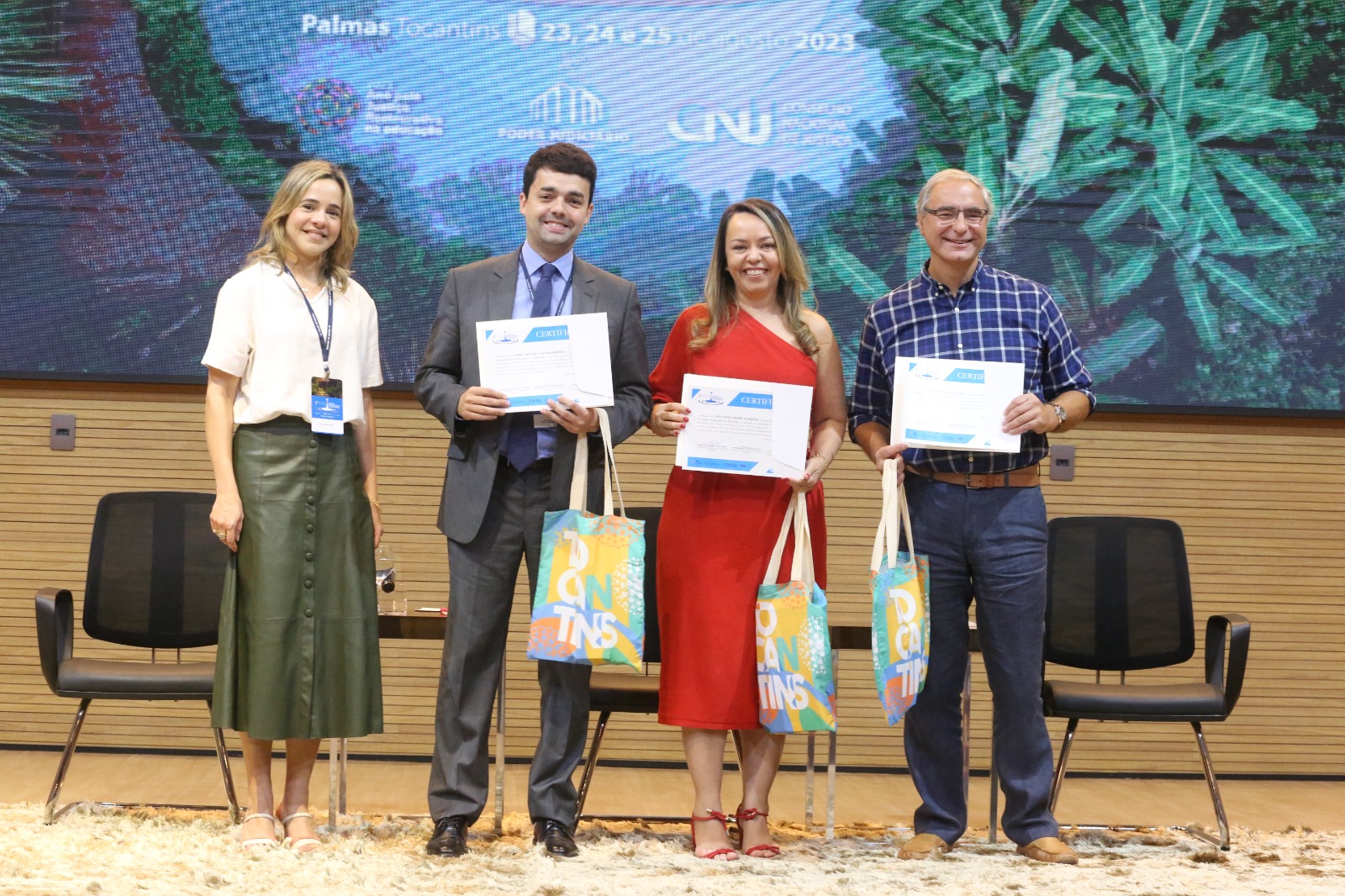
"Prison and school dropout: the need for new models of justice for Brazilian youth" and "The School-Prison Pipeline in the North American Experience" were the two lectures that opened the afternoon of the third and final day (August 25th) of the 1st National Meeting of Restorative Justice in Education, held in the auditorium of the Court of Justice of the State of Tocantins (TJTO). The event was held on an extremely symbolic date, August 24th, yesterday - Children's Day.
At the end, the speakers, the Public Defender for the State of Paraná, André Ribeiro Giamberardino, and the Associate Professor of Criminal Justice at Governors State University in Chicago and Ph.D. from the School of Justice and Social Research at Arizona State University, João Salm, respectively, as well as the coordinator of the panel, Judge of TJTO Julianne Marques, received certificates from the Assistant Judge of the presidency of the National Council of Justice (CNJ), Amini Haddad.
School dropout
Increased depression, divorce, segregation in the family and community, as well as school dropout. These were some of the side-effects caused in the family of an incarcerated person, as pointed out by the Public Defender for the State of Paraná, André Ribeiro Giamberardino, during the presentation of the lecture on "Prison and school dropout: the need for new models of justice for Brazilian youth", stressing that all of the relationships of the incarcerated person and interactions are affected by this model of the justice system.
"When a son or daughter has an incarcerated father or mother, they lose their reference point and, as they go through this experience of being the children of incarcerated parents, many end up dropping out of school. When the mother is imprisoned, the impact is even greater. Generally, the child stays with the grandmother or is institutionalized, while in the case of imprisoned fathers, the children stay with their mothers. That's why the effort to analyze a possible house arrest for mothers is so important, given the dimension that an incarceration of a mother involves, not just for the family, but for the entire social fabric. We in the justice system have to be able to understand that when we receive a young person we need to look at conflicts on an individual basis in order to understand the individual, but as restorative justice we need to go further and have a social conscience in order to see sociological issues such as structural racism and other inequalities. We really need to work on transformation in order to change the way Brazil was built. When we become aware of these social inequalities, many even call restorative justice transformative justice," concluded the Public Defender.
School-to-prison pipeline
"When you arrest someone, you punish them and their relationships. Does school serve to condition or liberate the human mind? In an ideal world, restorative justice is a set of principles and practices, but it is not legal justice, but relational justice. It aims to build relationships, to sit down together so that, through dialog, we can give light like a midwife to this business called justice. That's why restorative practices are, in fact, pedagogical processes that aim to learn about the other," said Professor João Salm in his lecture “The School-Prison Pipeline in the North American Experience”.
He also pointed out that in the United States, white supremacy over minority groups since the time of colonization has promoted a colonial domination of incarceration of black and indigenous youth from the creation of the country to the present day. So, restorative justice in schools works as follows:
Principles: humanizing values; relationships; collective and individual responsibility; dealing with harm and strengthening the community.
Practices: circular processes; victim-offender mediation; family conferencing; truth and reconciliation commissions.
Pioneering in the State of Tocantins
Diana Aleixo Gusmão, a Psychologist who works for the State Education Department (Seduc), spent nine years at the Military Police College (CPMI) in the city of Palmas. It was one of the first schools in the State of Tocantins to receive a psychologist to deal with conflicts with students. She is currently working with Seduc to expand the project to implement psychologists, social workers and educational counselors in all the educational units of the State, which began a year ago.
"From a perspective of reframing the paradigm that the military school comes to militarize the student, what we really did was develop socio-emotional skills and competences so that they could deal with frustrations, with the difficulties faced in the first stage of adolescence, because it's from sixth to ninth grade, and to live with them. With diversity, especially gender issues. So, when people say that the contracted school comes to implant intolerance, to implant disrespect, no, we did the opposite, we worked from a perspective of prevention, of promotion, implanting values and principles of mutual respect for peace and non-violence within the school context, it was preventive work. Then came the pandemic and we were able to bring in the social worker to make up the triad, along with the guidance counselor. They were going through a process of mourning, anxiety, very difficult processes. That's why I'm grateful to the Court of Justice for promoting this meeting and strengthening the work of this triad within the units of the state, in the territories of Tocantins," said Diana.




